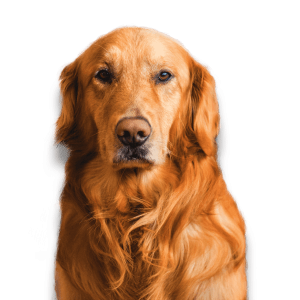What is it?
Diarrhoea is defined as the passage of a greater than normal volume of faeces; usually, the faeces are much wetter than usual, and they frequently have a more offensive smell than normal. Diarrhoea can be caused by disease of the small intestine or the large intestine (sometimes known as small bowel vs large bowel diarrhoea); and may also be due to an increase in gut movement or (counterintuitively!) a reduction in movement.
What causes it?
Diarrhoea is one of the most common symptoms reported in dogs, and there are a huge number of possible causes! It is important, though, to distinguish between acute (sudden onset) and chronic (ongoing) diarrhoea.
The commonest reason for a dog to develop acute (sudden onset) diarrhoea is diet - either too sudden a change in what they're being fed, or they've eaten something nasty (this is known as dietary indiscretion, and may also be accompanied by vomiting). However, other possible causes include infection (e.g. Parvovirus or Campylobacter), a heavy worm burden, or infection with parasites such as Giardia.
Chronic (ongoing) diarrhoea may also be seen with parasites, but also with a range of other conditions. One cause is a condition called Small Intestinal Bacterial Overgrowth (SIBO) where an excess of bacteria in the small bowel leads to problems. Non-infectious causes include pancreatic disorders (such as Exocrine Pancreatic Insufficiency, EPI), or toxins (e.g. heavy metals). Sometimes, the dog's own body is the problem, with conditions such as immune system diseases (e.g. Inflammatory Bowel Disease, IBD), food allergies (although this is rare, they usually cause itchy skin), or tumours of the intestine (especially Alimentary Lymphoma).
What dogs are at risk?
Almost all dogs will develop diarrhoea at some time in their lives. Puppies are at the highest risk of Parvovirus; young adult dogs are at higher risk of dietary indiscretion, while older dogs are more likely to have tumours. Sometimes genetics are also a factor - German Shepherds often have poor intestinal immunity, making them more prone to infections, whereas some lines of Basenji are predisposed to IBD.
What are the symptoms?
Although most dogs with diarrhoea are producing more faeces than usual, the exact symptoms will depend on where the diarrhoea originates. Small Bowel diarrhoea typically causes a larger increase in faecal volume, but only a mild increase in frequency. It is often associated with vomiting, loud intestinal noises, and if it goes on for too long, weight loss. Large Bowel diarrhoea, on the other hand, tends to result in massively increased frequency of defecation, often with straining. In many cases, the faeces passed will be jelly-like and may contain blood. Of course, as diarrhoea is a symptom, the underlying illness may cause other symptoms as well - such as weight loss in tumours, or fever in infections.
How is it diagnosed?
Well, the presence of diarrhoea is pretty unmissable! However, working out exactly what the cause is can be quite challenging. Fortunately, most cases of acute diarrhoea can be managed symptomatically and will resolve on their own in a short time. Diagnostic tests to determine the cause include blood tests (especially for Cobalamin and Folate for SIBO, plus TLI for EPI); and faecal analysis (to look for worms and other parasites, plus certain bacteria (such asSalmonella and Campylobacter). If a food allergy is suspected, a hypoallergenic exclusion diet may be needed; and if IBD might be responsible, endoscopy and gut biopsies are invaluable.
How can it be treated or managed?
For simple acute diarrhoea, home management is usually appropriate for the first 2-3 days, assuming the dog is otherwise healthy and bright in themselves. Do NOT starve a dog with diarrhoea, but do offer them plenty of water (ideally with dog-suitable electrolytes to help prevent dehydration), and feed a very bland diet (boiled chicken and rice, or a specialist intestinal food). Anti-diarrhoeal pastes such as ProKolin or ProMax will also help, but NEVER give human medicines unless told to by the vet. If the diarrhoea doesn't resolve on its own; or if your dog seems dull, listless, ill in themselves, or has any other symptoms, take them in to the practice so your vet can check them over. In most cases, once the cause is identified, your vet will treat that, but occasionally specialist antidiarrhoeal drugs may be prescribed.
Can it be prevented?
The best way to minimise the risk is to make sure your dog only eats a good-quality diet, you don't change food rapidly, and you don't let them rummage in dustbins or eat dead rotting things they find out and about!
